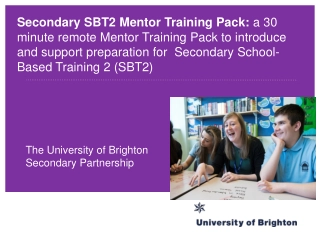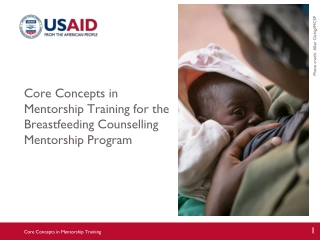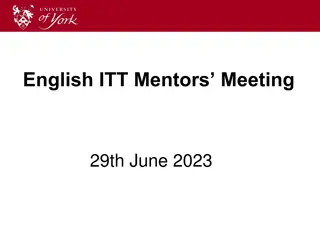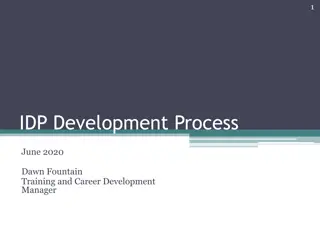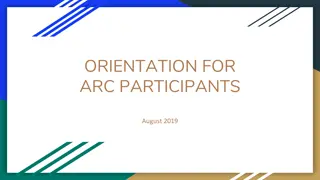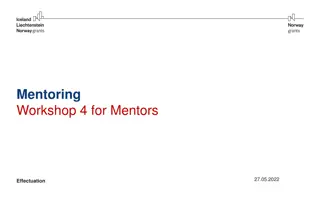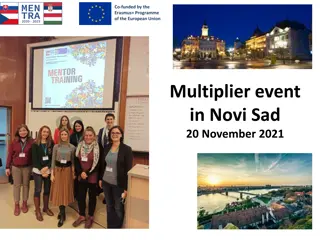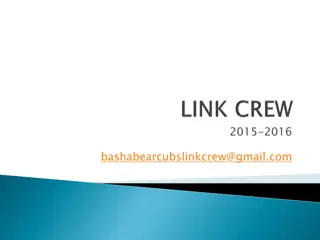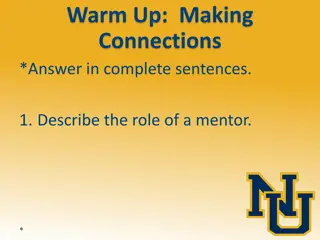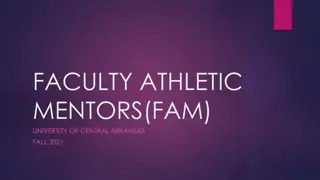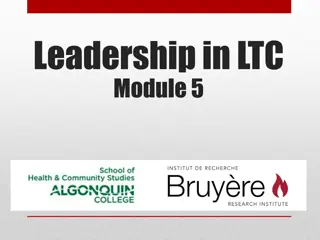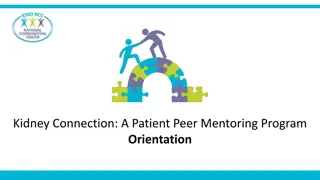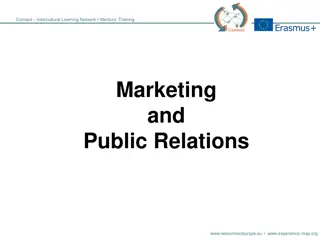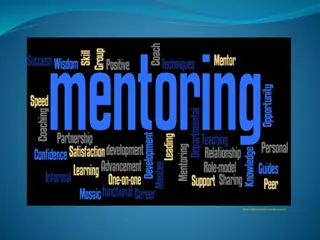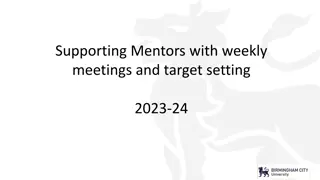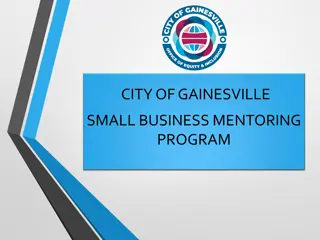
Under-Utilized Resource: Mentors in Geography Education
Explore the significance of mentors in geography education, potential impacts on retention, effective mentor development, and mentor standards as outlined by the National Standards. Discover how mentors enhance teacher training and support early career educators.
Download Presentation

Please find below an Image/Link to download the presentation.
The content on the website is provided AS IS for your information and personal use only. It may not be sold, licensed, or shared on other websites without obtaining consent from the author. If you encounter any issues during the download, it is possible that the publisher has removed the file from their server.
You are allowed to download the files provided on this website for personal or commercial use, subject to the condition that they are used lawfully. All files are the property of their respective owners.
The content on the website is provided AS IS for your information and personal use only. It may not be sold, licensed, or shared on other websites without obtaining consent from the author.
E N D
Presentation Transcript
Mentors in Geography Education: an under-used resource and under- represented community? Presented by Maria Palombo
The significance of mentors 1992 - requirement for student teachers to spend a minimum of 24 weeks in school for full-time PGCE Growth of employment based routes since 1990s The Carter Review (2015) has several sections devoted to school- based mentoring and makes recommendations which led to National Standards for school-based initial teacher training (ITT) mentors (DFE, 2016)
Potential impact on retention: A suggestion that stimulated a lot of discussion: Further subject specialist support being offered for early career teachers, particularly around mentoring, providing networks and resources and using a database to track teachers and offer additional support if they decide to leave. Concerns were around not duplicating what was already available, having the time to use elements of the support package, confidentiality and independence of mentors, and the availability of mentors at a suitable time prior to making a decision to leave. Some also suggested the support package would be useful for those slightly later in their careers. DFE (2018a) p8
Considering effective development of school based mentors We believe the best programmes also give careful thought as to how to train and value mentors effectively both when teachers become mentors and on an on-going basis. This goes beyond briefing about the course structure, assignments and paperwork: effective training supports mentors to further improve their practice by training them in how to deconstruct and articulate their practice, how to coach and how to support and assess trainee teachers effectively. Effective training will also indicate other sources of support for example, subject associations. DFE, The Carter Review (2015), p.41
Mentor Standards Standard 1 - Personal qualities Establish trusting relationships, modelling high standards of practice, and empathising with the challenges a trainee faces. Standard 2 Teaching Support trainees to develop their teaching practice in order to set high expectations and to meet the needs of all pupils. Standard 3 Professionalism Induct the trainee into professional norms and values, helping them to understand the importance of the role and responsibilities of teachers in society. Standard 4 Self-development and working in partnership Continue to develop their own professional knowledge, skills and understanding and invest time in developing a good working relationship within relevant ITT partnerships. DFE (2016) National Standards for school-based initial teacher training (ITT) mentors
Professional Identity mentoring as a distinct role with a professional knowledge base Hobson et al (2009) describe the need to develop a shared discourse for mentoring within a mentoring community (p212). Apsfors et al (2015) argue that the process of becoming a mentor is important since being a good teacher is not necessarily the same as being a good mentor. Schatz-Oppenneimar (2017) uses mentor perceptions before embarking on training to highlight that mentors perceive the job of mentoring to be very similar to that of teaching stating that "the assumption that a good teacher will make a good mentor were evident in participants' statements" (p287).
Two Key Questions Have mentors in geography education been given a voice to share their ideas and experiences, about their role and their development needs? How can we utilise our disciplinary knowledge, as a geography education community, to support the development and progression of high quality subject mentors? A mentor is a school-based colleague who works with a teacher to support their professional development and inform their practice . Rawding and Tapsfield (2017)
Educative Mentoring Educative mentoring is mentoring that goes beyond quick-fix, feel- good support to incorporate a vision of good teaching , teachers as learners and the classroom as a site of inquiry (Norman and Feiman- Nemser, 2005). It is based on constructivist principles that involve building compelling theoretical knowledge about teaching and learning (Richter et al., 2011), facilitating the development of alternative beliefs and viewpoints (Flores and Day, 2006) and collecting and assessing high-quality evidence that is professionally relevant to the beginning teacher (Yusko and Feiman-Nemser, 2008). Langdon and Ward 2015, p243
The Curriculum Making Model If mentoring is too focused on technical aspects of the classroom, there is a danger of not considering the relationship between what is taught and how it is taught. Teachers need to consider what they are teaching and how, balanced with the needs of the pupils and drawing from the discipline. Lambert and Morgan (2010)
A National Survey for Geography Mentors The online survey explores: Who are geography mentors, and who do they mentor? How do geography mentors currently mentor, and why? What development and progression opportunities would geography mentors like, and why?
The survey is comprised of a number of question styles allowing for rating, specific yes/no questions and open ended questions.
A National Survey for Geography Mentors The online survey explores: Who are geography mentors, and who do they mentor? How do geography mentors currently mentor, and why? What development and progression opportunities would geography mentors like, and why?
Can you share? In order to widen participation as much as possible, could you share the survey? https://opinio.ucl.ac.uk/s?s=56576 Follow @GeogMentor on twitter
Next Steps Further article in Teaching Geography to share the results of the survey Conduct a workshop at The GA Conference in April based on the results of the survey Potential for further investigation with geography subject mentors
References Apsfors, J. Fransson, G. (2015) Research on mentor education for mentors of newly qualified teachers: A qualitative meta-synthesis Teaching and Teacher Education, Volume 48 pp75-86Carter, A. (2015) Carter Review of Initial Teacher Training, DFE available at: https://www.gov.uk/government/publications/carter-review- of-initial-teacher-training last accessed 21/8/17 DFE (1992) Initial teacher training (secondary phase) Circular 9/92. Available at http://www.educationengland.org.uk/documents/des/circular9-92.html last accessed 21/9/17 DFE (2016) National Standards for school-based initial teacher training (ITT) mentors, available at: https://www.gov.uk/government/uploads/system/uploads/attachment_data/file/536891/Mentor_standards_report_Fin al.pdf last accessed 21/7/17 Department for Education (2018) Factors Affecting Teacher Retention: A Qualitative Investigation: Research Report available at: https://assets.publishing.service.gov.uk/government/uploads/system/uploads/attachment_data/file/686947/Factors_aff ecting_teacher_retention_-_qualitative_investigation.pdf last accessed 21/01/19 Hobson, A. Ashby, P. Malderez, A. Tomlinson, P. (2009) Mentoring beginning teachers: What we know and what we don t Teaching and Teacher Education, Volume 25, pp.207-216 Lambert, D. Morgan, J (2010) Teaching Geography 11-18: A Conceptual Approach Open University Press: Maidenhead Langdon, F., Ward, L (2015) 'Educative mentoring: a way forward', International Journal of Mentoring and Coaching in Education, Vol 4, Issue: 4, pp. 240-254 Schatz-Oppenneimar, O. (2017) 'Being a mentor: novice teachers' mentors' conceptions of mentoring prior to training.' Professional Development in Education, Vol. 43 Issue 2, pp274-292 Ulvik, M. Sunde, E. (2013) 'The impact of mentor education: does mentor education matter?' Professional Development in Education, Vol 39, Issue 2, pp754-770

